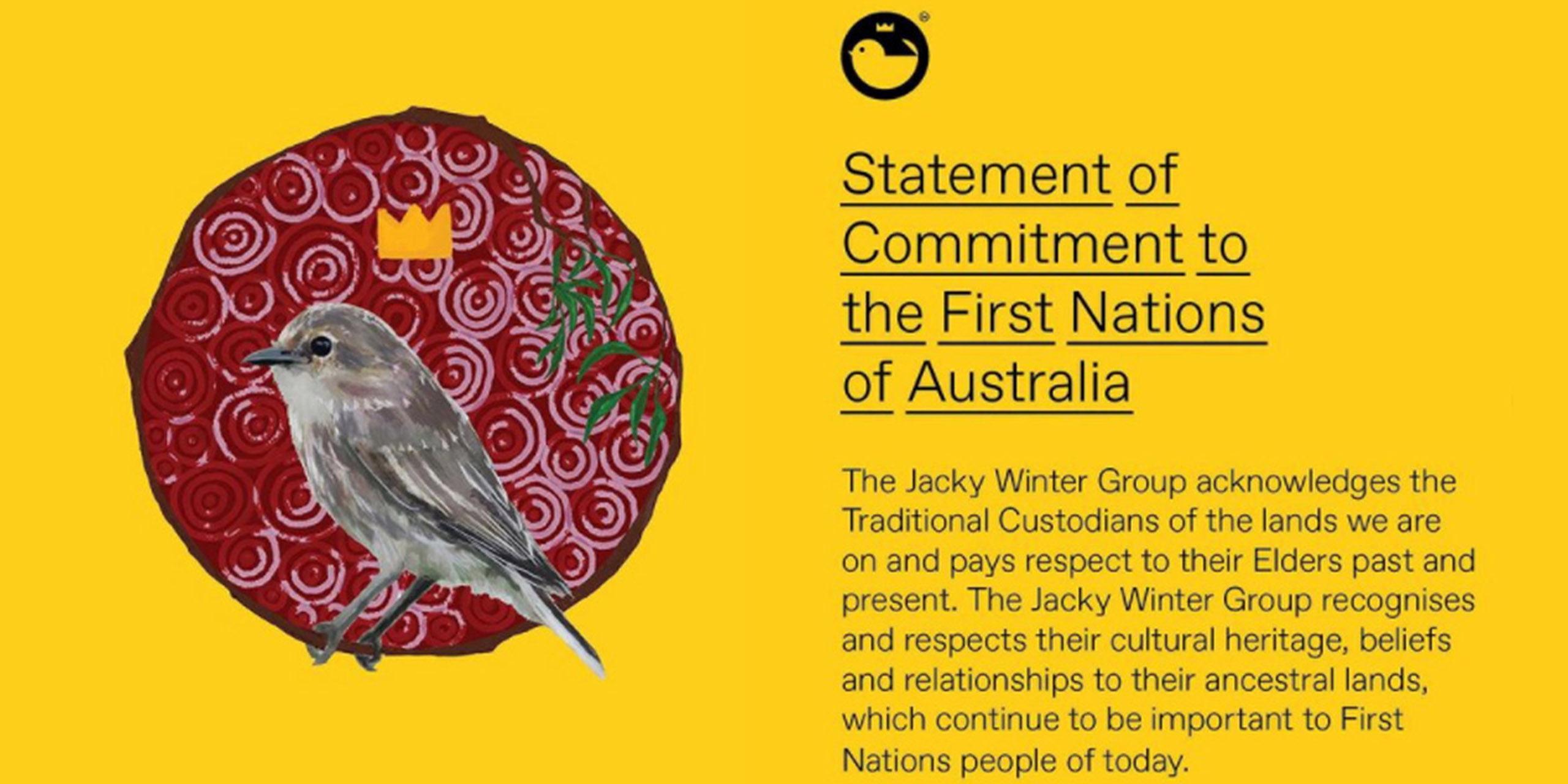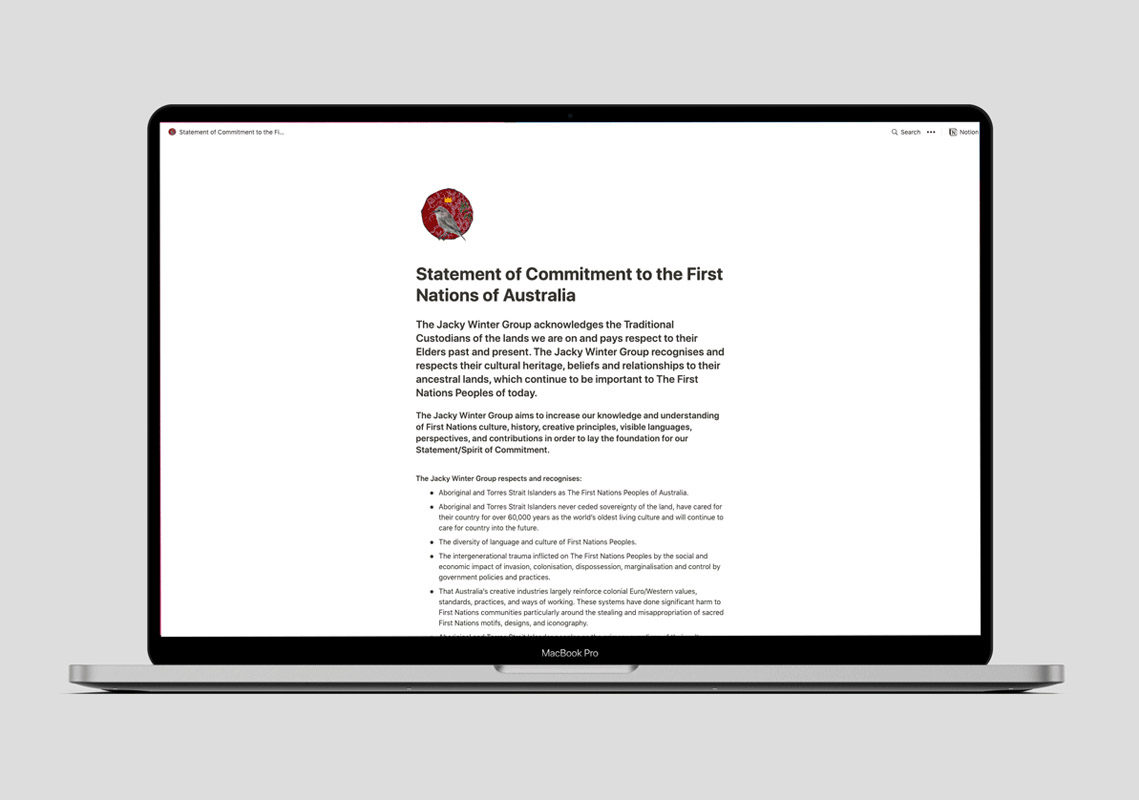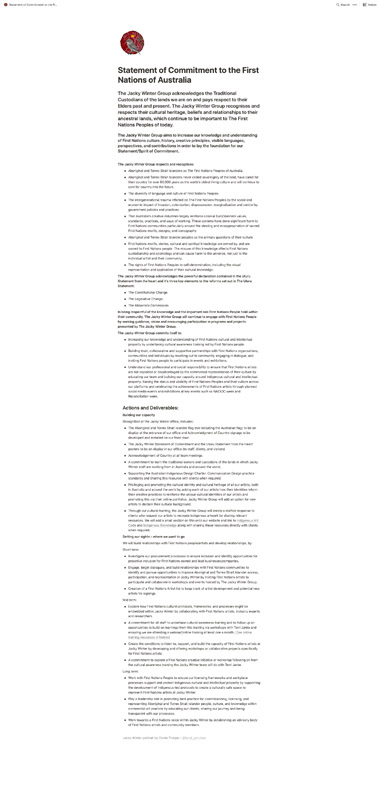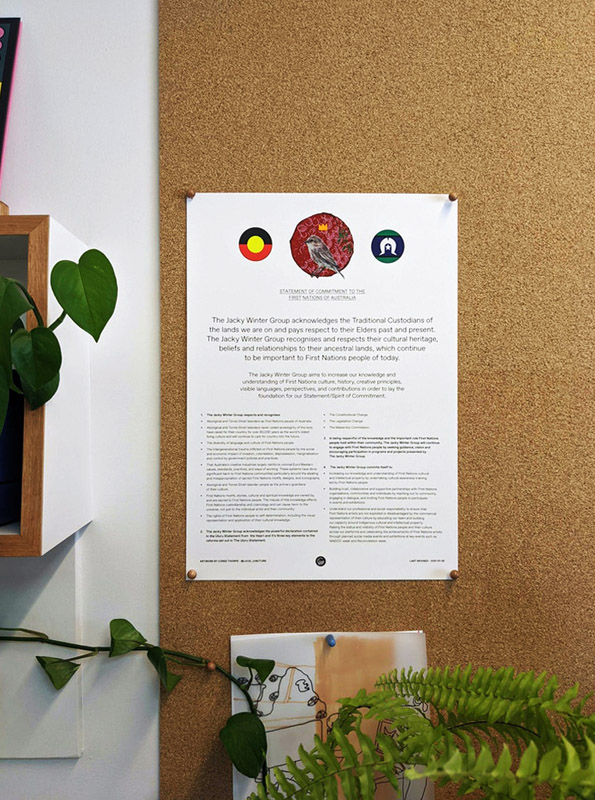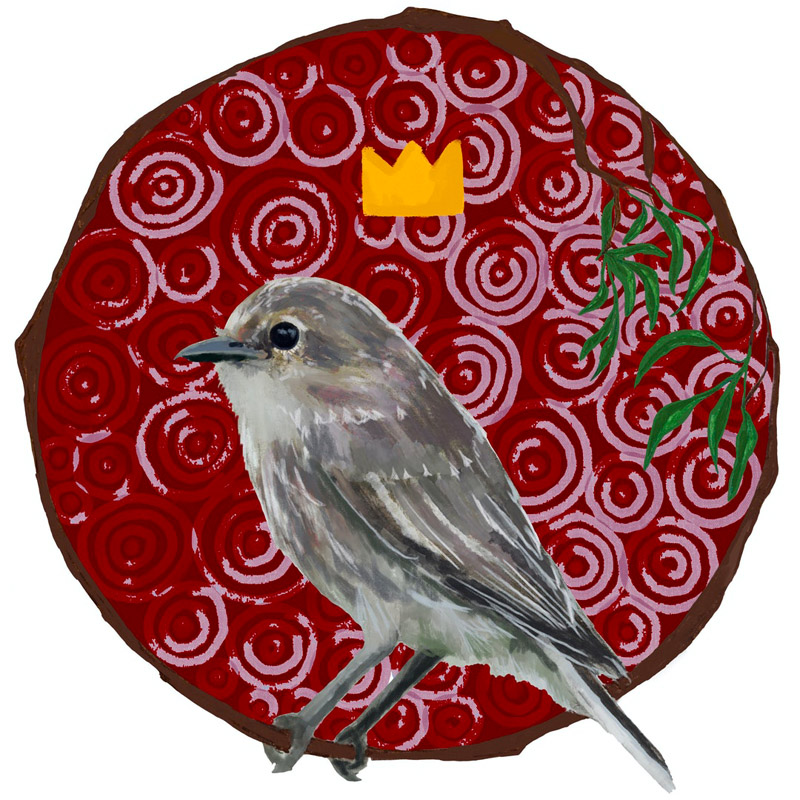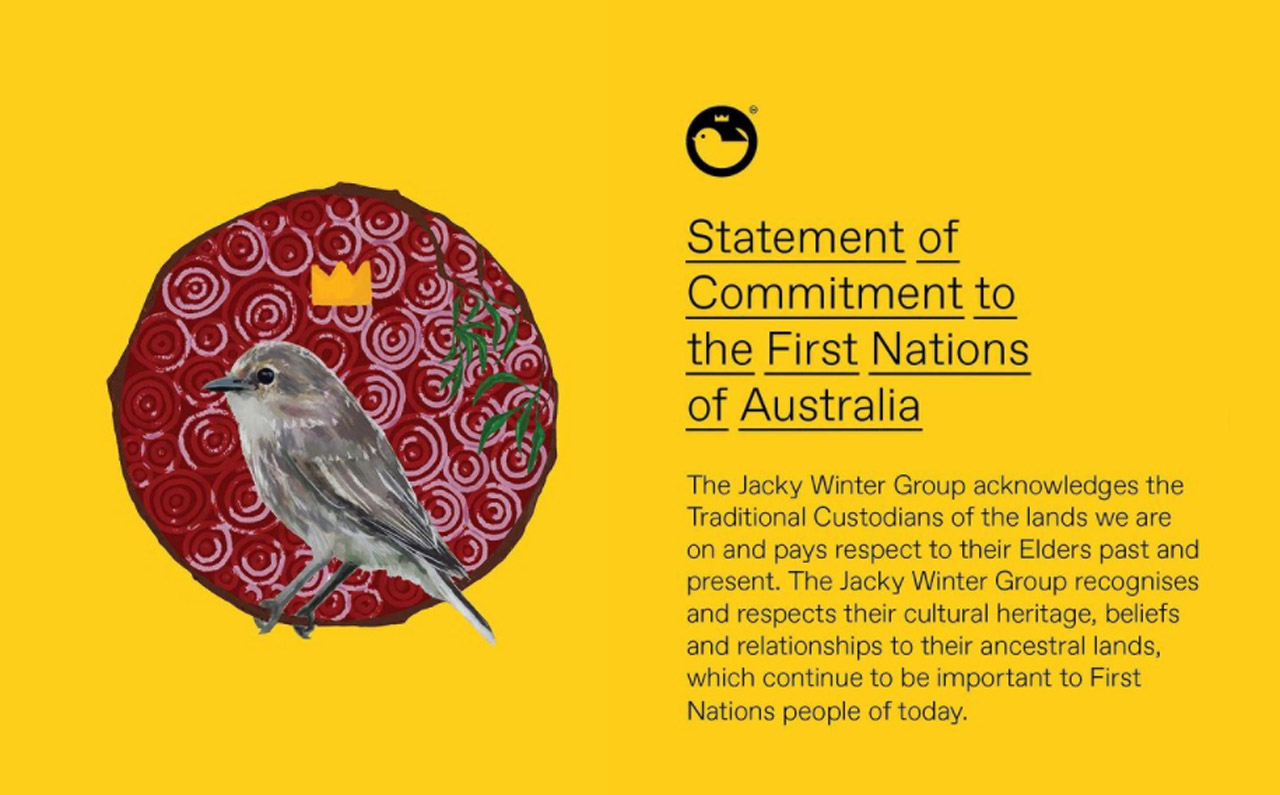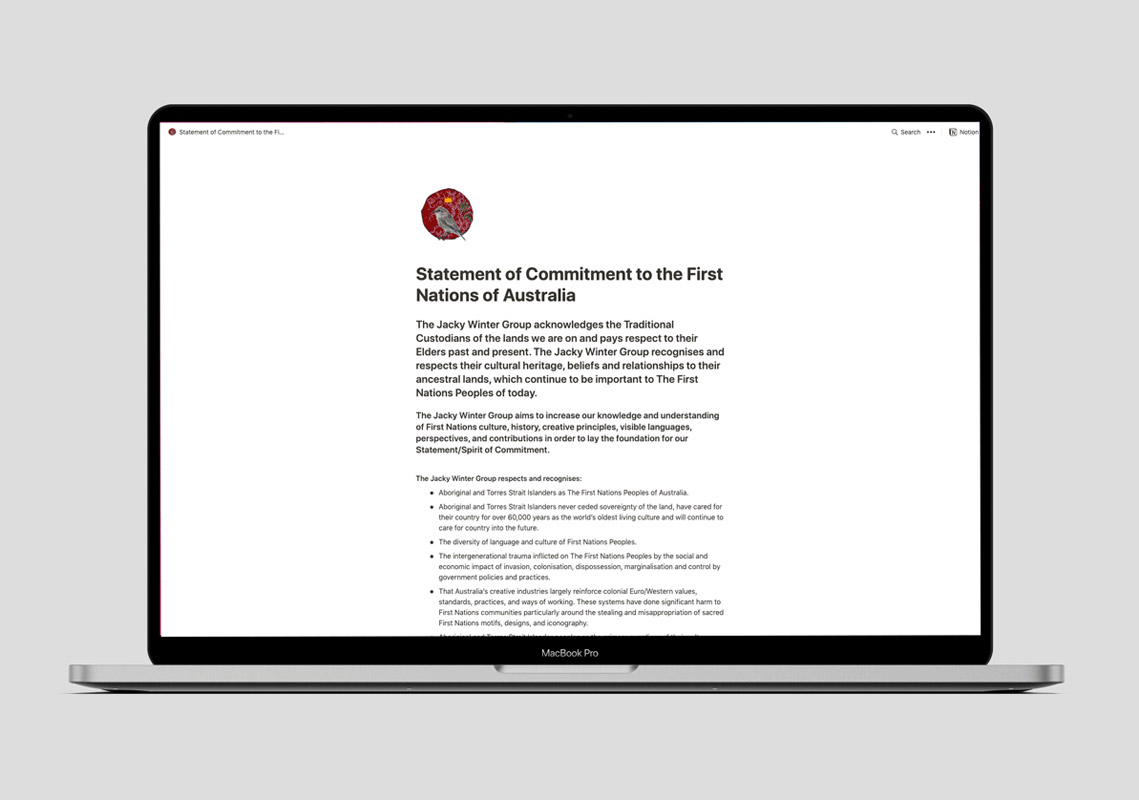The JWG began by collaborating with cultural consultant Emrhan Tjapanangka Sultan from Western Arrarnta, Luritja and Kokatha nations, design researcher Nicola St John from RMIT University, and directly alongside First Nations community members, including local communities within Melbourne and across Victoria.
To privilege First Nations voices, draw on First Nations’ ways of working, and protect Indigenous cultural and intellectual property, we worked to create of a Statement of Commitment developed alongside and supported by the First Nations community so it could be sustainable for the long-term future. Moreover, it specifically addresses commitments relevant to the design and representation industry. This was drafted in consultation with local traditional owners and national community representatives. First Nations artist Corey Thorpe then collaborated with the team to bring the Statement to life through the development of an identity and associated design outcomes.
The collaborative process of developing a Statement of Commitment aimed to move beyond ‘engaging’ First Nations artists, peoples, and communities to enhance or ‘add on’ reconciliation objectives to businesses, but for First Nations people to lead organisation change at a strategic and structural level.
A ‘Statement of Commitment’ is an innovative process and document by which businesses and employees can demonstrate their recognition of, and commitment to adopting good practices. Structurally it differs from a more formalised ‘Reconciliation Action Plan’ by self empowering the organisation to think about better ways of engaging with First Nations people with a deeper insight into what they want to achieve. This process is led from recommendations provided directly by First Nations community members.
The purpose of this strategic document is to be a ‘north star’ for JWG as a company, which can be referred back to, hold the business accountable, and be a reference point for future developments and collaborations.

